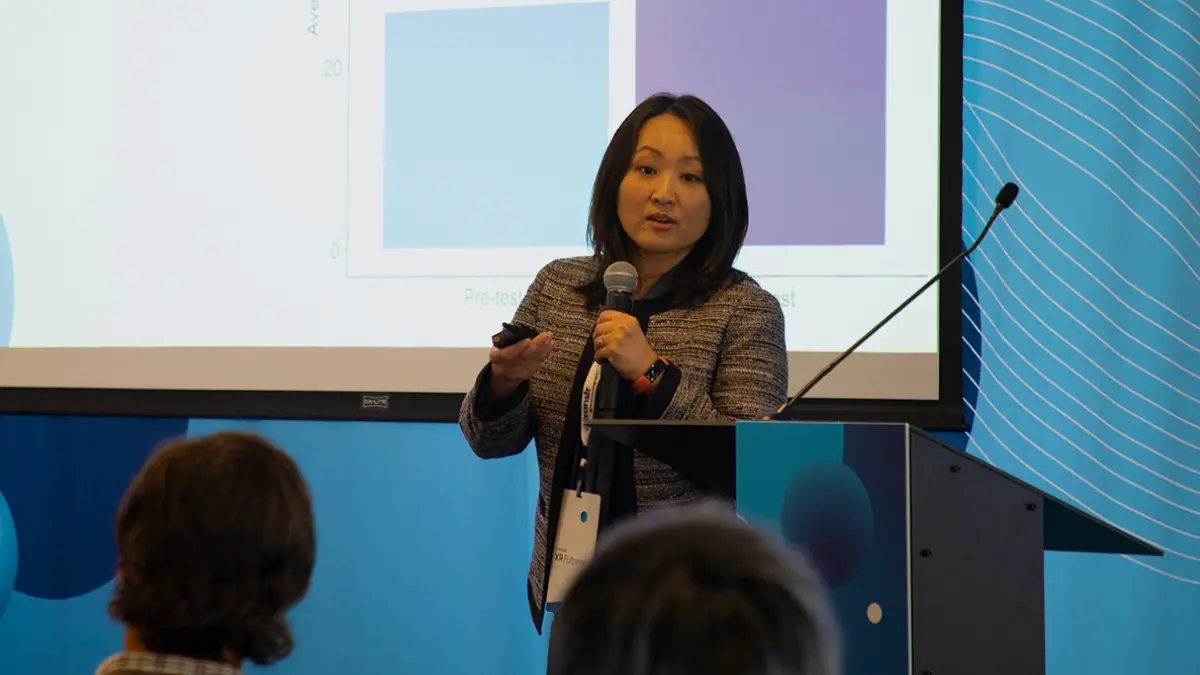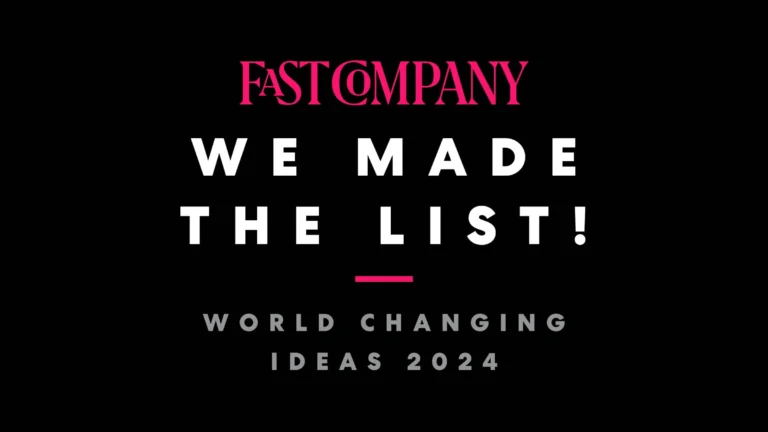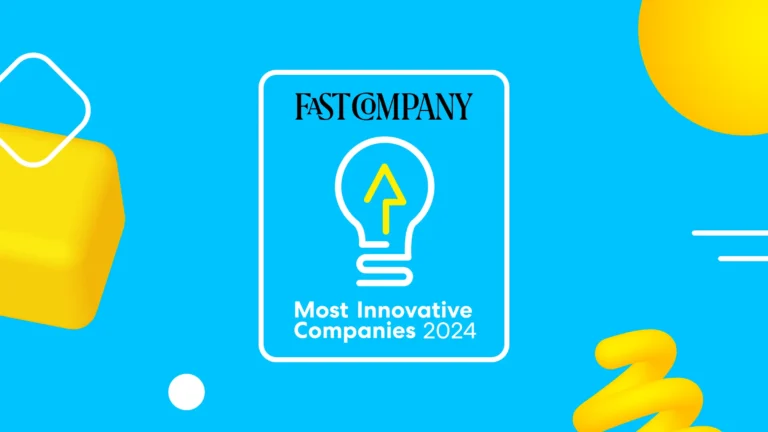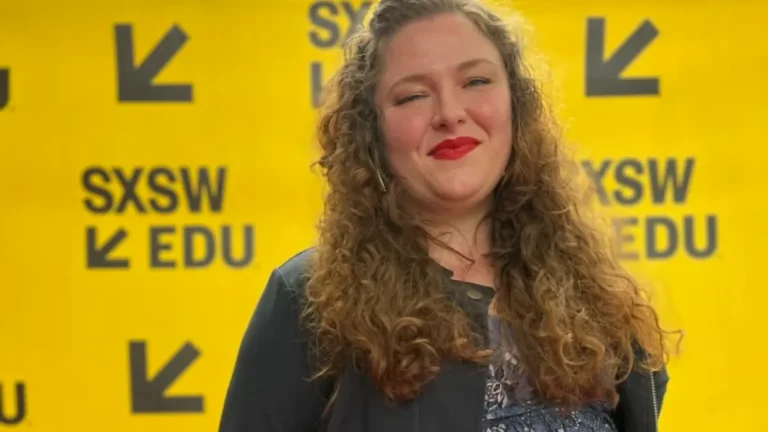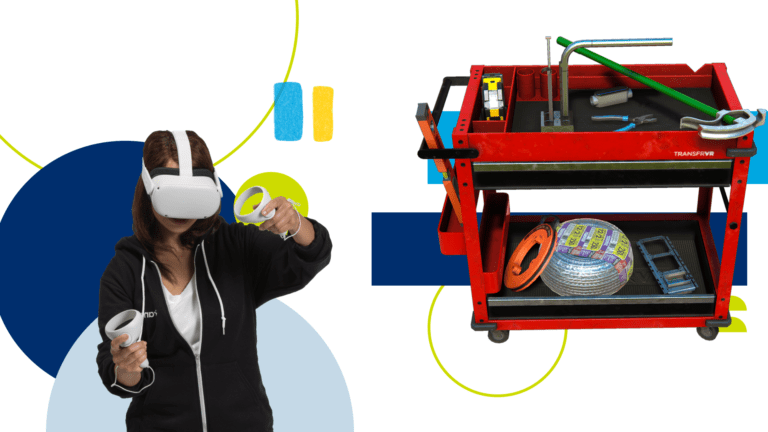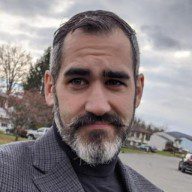Yun Jin Rho, PhD is the Director of Data Science at Transfr. During an interview with Upward, the Transfr Podcast, she revealed that for her, reaching this position was anything but a straight path! We’re proud of the fact that nontraditional pathways are common here at Transfr, so we sat down with her to delve into her inspiring story.
As leader of the Learning Intelligence team, Yun Jin heads up learning research and conducts virtual reality (VR) efficacy studies (as well as a host of other duties). The research that Yun Jin and team conduct influences product development, reveals how learners access and interact with programs and systems, and includes data on the success of different users’ journeys and job placement.
When assessing people’s learning pathways and outcomes, Yun Jin draws on personal experience: A challenge she encountered during her education changed how she evaluates the ways that lives and careers can, in her words, “deviate from our expectations.”
Learning to define success your own way
To Yun Jin, embracing nontraditional pathways is all about re-assessing assumptions about education, qualification, career direction, and how success is defined — then being able to adjust expectations and change course when something doesn’t work out.
“I was actually thinking a lot [about] how I can share my story, which is a failure story. It’s not fun at all,” she noted cautiously. “Of course, if I look back, now I’m fine… I can view it as a learning experience. But if you look at my resume, people may think ‘Oh, you have a really, like, traditional linear pathway.’ Well, there is a hidden story… a resume doesn’t say everything.”
Regarding her experiences as a student in Korea, she explained, “I was very very focused on education and getting into the top college. You know, that mindset. I grew up in Korea and we are very competitive and very much focused on education. At that time, my generation especially was all about competition — the scores that you have on any test. In Korea, after 12 years of education, after your high school, there is a one-time standardized exam that is the equivalent of an SAT or ACE. You take the exam to get into college.”
When students ace the test, Yun Jin explains, the expectation is they will have their pick of schools and follow a trajectory to a well-paid white-collar professional career.
An educational setback shifts Yun Jin’s thinking
But that straight-line school-to-college-to-career pathway is far from a sure thing, Yun Jin revealed:
“I took the exam, but at the time I had so much pressure, I couldn’t handle the stress and everything, and I couldn’t finish the test. I failed it.”
While poor performance on a test might not seem like the end of the world, Yun Jin’s family and cultural expectations, as well as being a high-performing student, made it resonate heavily. To this day, she still gets emotional thinking and talking about it, and had to pause before continuing her story:
“That failure was a big moment where I had to think about my life. As a high school student, I was a very high performer, and you know, in my head the definition of success was just flawless — no mistakes: You go to the college that you want and you get a job… So that was a tough time and there was also social stigma. After 12 years of education, there was this one time for you to show that you did a good job. My family was frustrated and everybody was frustrated. I intentionally isolated myself from all social interactions for about a year.”
Developing a compassionate research philosophy
Yun Jin’s setback, while devastating at the time, also provided her with a moment of enlightenment: Rather than proceed along an expected course, Yun Jin had to reflect on the nature of academic expectations placed on students relative to perceived opportunities.
“I started thinking that I need to redefine success,” Yun Jin says. “Anybody can make a mistake, no matter how big it is, no matter how small it is. You can make a mistake — but that mistake shouldn’t determine your success.”
The only successful life previously defined for her demanded academic excellence, followed by higher education, followed by a lucrative career — alternatives were non-existent. Obviously, in that context, failing the placement exam was an unmitigated catastrophe. Yet she also saw the contradiction of being a student who had excelled academically but was undermined by the pressure the exam caused.
Approaching the future with optimism
Yun Jin was able to retake the test a year later and move forward with her life plans, however, she would ultimately become more open-minded in her approach to thinking about other people’s learning journeys and career paths:
“From my personal experience and observations, I think that each person’s pathway comes from their mistakes and choices that they have made. There is no right way or wrong way to find success.”
It’s vital that students and workers receive opportunities for second chances, opportunities to try out different learning styles and job skills and change course into better-fitting careers, and for hiring managers to be more open to candidates outside narrow tracks of qualification such as “the right college major.” Regarding learning research, Yun Jin observes:
“We are not just looking at and analyzing numbers, we are interpreting data to understand learners and educators and people behind. I’m all about people-centered research and I emphasize this point to my team members!”
About Yun Jin Rho
Yun Jin Rho, Ph.D., Director of Data Science at Transfr has been in the EdTech world since 2010. She’s an inventor who holds four patents regarding learners’ skill estimation and predictive recommendation in adaptive learning. When she’s not helping build the future of VR training, she enjoys playing piano and listening to her son singing. Hear her inspiring story here!
